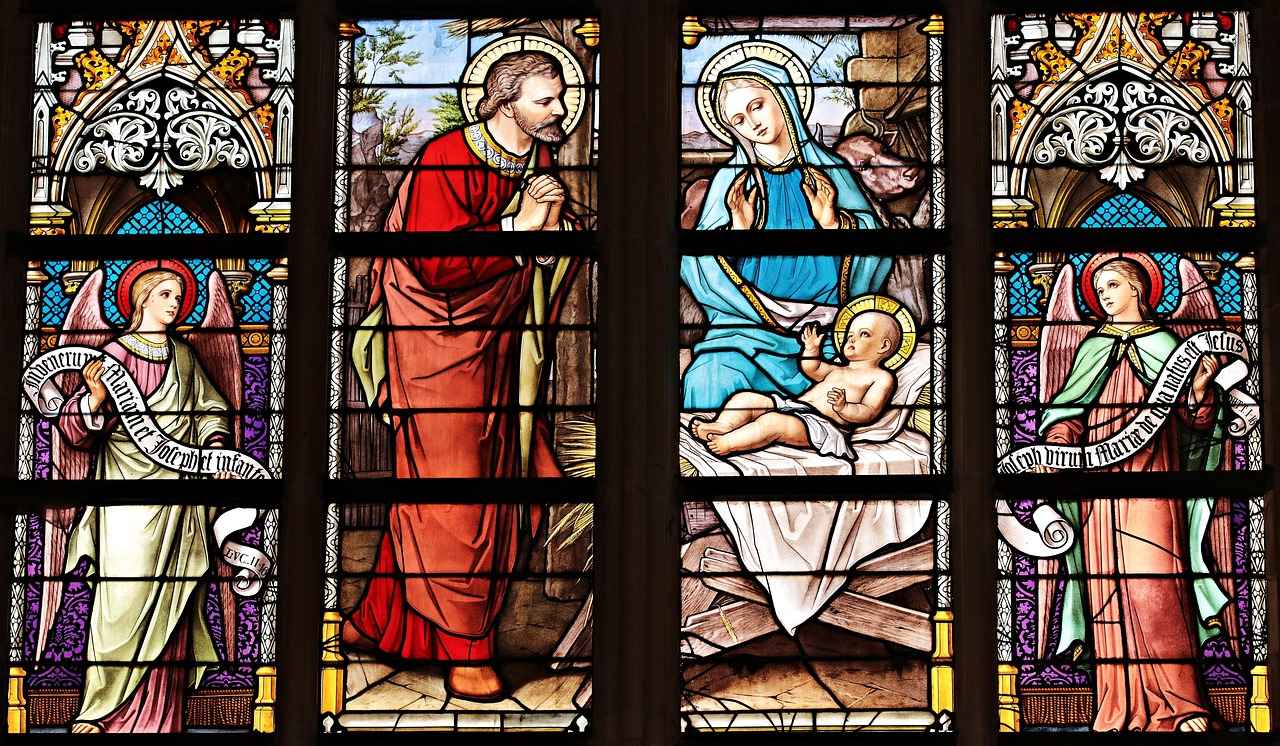This article explores effective methods and resources for locating churches nearby, emphasizing community engagement, spiritual growth, and the diverse offerings of local congregations.
Understanding the Importance of Local Churches
Local churches play a crucial role in the fabric of communities. They serve not just as places of worship but as vital support systems that foster spiritual growth and community engagement. These institutions provide a sense of belonging and connection, offering various programs that cater to all age groups. From youth groups to senior activities, churches often become the heart of community life.
How to Use Online Tools to Find Churches
The digital age has transformed how we connect with our communities, including finding local churches. Numerous online platforms and tools simplify the search process, allowing individuals to explore various congregations based on their preferences and locations.
Using Google Maps for Church Searches
One of the most effective tools is Google Maps. By entering relevant search terms like “churches near me,” users can discover a list of nearby options. Google Maps not only provides addresses but also includes reviews and service times, making it easier to evaluate different churches.
Reading Reviews and Ratings
Online reviews serve as a valuable resource for understanding a church’s community dynamics and worship style. Reading ratings can help potential visitors gauge which church aligns best with their spiritual needs, offering a glimpse into the experiences of current members.
Finding Service Times and Events
Most churches maintain online platforms where they post their service times and special events. This information is essential for planning visits and participating in community activities, ensuring you engage with the church at the right time.
Exploring Social Media for Church Recommendations
Social media platforms like Facebook and Instagram are increasingly becoming vital resources for discovering local churches. Many congregations actively engage with their communities online, sharing updates, events, and inspirational messages that can help newcomers feel connected before they even attend a service.
Visiting Church Websites for Detailed Information
Church websites often provide comprehensive information about their beliefs, services, and community involvement. By visiting these sites, individuals can make informed decisions about which church aligns with their values and beliefs.
Understanding Beliefs and Denominations
Different churches represent various denominations and beliefs. Familiarizing yourself with these can help you find a church that resonates with your personal faith journey. Many websites include sections that explain their core beliefs, helping visitors understand their doctrinal stance.
Checking for Community Involvement
A church’s commitment to community service can be a strong indicator of its values. Look for churches that actively participate in outreach programs, as this involvement often reflects a genuine desire to make a difference in the local community.
Engaging with Local Community Boards and Groups
Community boards and local groups can be excellent resources for finding nearby churches. Engaging with these platforms can lead to valuable recommendations and insights from individuals who have firsthand experience with various congregations.
Joining Local Online Forums
Online forums dedicated to community discussions can provide a wealth of information about local churches. Participating in these discussions allows individuals to ask questions and receive personal recommendations based on shared experiences.
Attending Local Events for Networking
Community events present an excellent opportunity to network with church members and leaders. By attending local gatherings, you can meet individuals who can share insights about their church experiences, helping you discover congregations that align with your values.
Participating in Church Services and Activities
Once you’ve identified potential churches, attending services and events provides firsthand experience of their community and worship style. This engagement is crucial for making an informed choice about which church to join.
Trial Visits to Different Churches
Consider visiting multiple churches to experience different worship styles and communities. This trial period can help you find a place that feels like home, allowing you to explore various aspects of church life.
Engaging with Church Members
Building relationships with church members can significantly enhance your experience. Engaging in conversations with current members can provide deeper insights into the church’s culture, values, and community activities.
Making a Decision: Factors to Consider
Choosing a church is a deeply personal decision influenced by various factors, including theology, community involvement, and worship style. Reflecting on these aspects is essential for finding a church that truly fits your spiritual journey.
Evaluating Worship Style and Teaching
Different churches have varying approaches to worship and teaching. Understanding these differences can help you find a church that aligns with your spiritual preferences, whether you prefer traditional services or more contemporary worship experiences.
Considering Location and Accessibility
The location of a church can significantly impact your ability to attend services regularly. Consider factors such as distance, transportation options, and accessibility when making your choice, ensuring that you can engage with the church community consistently.

Understanding the Importance of Local Churches
Local churches play an essential role in the fabric of their communities, serving as more than just places of worship. They are pivotal in providing spiritual support, offering a variety of social services, and fostering a profound sense of belonging among their members. The significance of these institutions extends beyond the walls of the church, influencing the broader community in numerous ways.
- Spiritual Guidance: Churches provide a sanctuary for individuals seeking spiritual growth and understanding. They offer sermons, Bible studies, and counseling services that cater to the spiritual needs of their congregants.
- Community Services: Many local churches engage in outreach programs that address social issues such as hunger, homelessness, and education. They often organize food drives, provide shelter, and offer tutoring programs, thus playing a crucial role in improving the quality of life for many.
- Social Connections: The church community acts as a network of support for individuals and families. It fosters friendships and connections that can lead to lifelong relationships, providing a sense of belonging that is often hard to find elsewhere.
- Cultural Events: Local churches frequently host cultural and community events, such as festivals, concerts, and workshops, which help to strengthen community ties and celebrate diversity.
In addition to these functions, local churches often serve as a platform for advocacy, addressing social justice issues and promoting community welfare. They encourage congregants to engage in civic activities and advocate for policies that benefit the community. This involvement can lead to tangible changes that positively impact the lives of many.
Moreover, the role of local churches in fostering community ties cannot be underestimated. They often act as a bridge between different demographics, bringing together individuals from various backgrounds and fostering understanding and cooperation. This unity can be especially vital in times of crisis, as churches often mobilize resources and support for those in need.
As we navigate through life’s challenges, the importance of having a supportive community cannot be overstated. Local churches provide a safe haven where individuals can find spiritual nourishment, engage in meaningful service, and connect with others who share similar values and beliefs. They are indeed vital community hubs that contribute significantly to the overall well-being of society.
Ultimately, the impact of local churches extends far beyond their immediate congregations. They are integral to the social fabric of their communities, promoting a culture of compassion, service, and community engagement. For many, these institutions represent a cornerstone of support and a beacon of hope in an ever-changing world.

How to Use Online Tools to Find Churches
Finding a church that aligns with your beliefs and community needs is essential for spiritual growth and connection. In today’s digital age, online tools offer a myriad of resources to assist in your search. This article delves into effective methods to utilize these tools for locating churches near you.
The internet offers various platforms and tools to locate churches near you. Utilizing search engines and church directories can streamline the process significantly. Here’s how you can make the most of these resources:
Search engines like Google are your first stop. By simply entering terms such as “churches near me” or “local churches“, you can quickly generate a list of nearby congregations. This method is not only efficient but also allows you to:
- Access a variety of options: You can see different denominations and styles of worship.
- Read reviews: Many listings include ratings and reviews from congregation members, giving you insights into the community.
- Check service times: Most church listings provide information about service schedules, making it easier to plan your visit.
Church directories are another excellent resource. Websites such as Church Finder or FaithStreet allow users to search by location, denomination, and service type. These directories often include:
- Detailed church profiles: Information about beliefs, community services, and upcoming events.
- Contact information: Easily reach out to churches for any inquiries.
- Map features: Visualize the location of churches relative to your home or workplace.
Google Maps is a powerful tool for finding churches. By entering relevant search terms, users can discover nearby options along with reviews and service times. Here are some tips to maximize your Google Maps search:
- Use specific keywords: Search for terms like “non-denominational church” or “youth-friendly church” to narrow down your options.
- Explore the map view: This allows you to see the proximity of different churches to your location.
- Read reviews: User-generated content can provide insights into the church’s atmosphere and community engagement.
Social media platforms like Facebook and Instagram can also be valuable resources for discovering local churches. Many congregations actively engage with their communities online, sharing updates, events, and testimonials. You can:
- Follow local churches: Stay updated on events and activities.
- Join community groups: Engage with others who may share recommendations and experiences.
- Participate in online discussions: These can provide insights into the church’s culture and values.
Once you have a list of potential churches, visiting their websites can provide comprehensive information about their beliefs, services, and community involvement. Key aspects to look for include:
- Beliefs and doctrines: Understanding the church’s teachings can help you find one that resonates with your faith journey.
- Service times and events: Most churches list their schedules online, helping you plan your visits.
- Community outreach: Check if the church is involved in local missions and social causes, which can be a strong indicator of its commitment to the community.
In summary, using online tools to find churches can be an efficient and informative process. By leveraging search engines, church directories, Google Maps, social media, and official church websites, you can discover a congregation that aligns with your spiritual needs and community values.
Using Google Maps for Church Searches
Google Maps has revolutionized the way we navigate our surroundings, making it an indispensable tool for locating various establishments, including churches. By leveraging its extensive database and user-friendly interface, individuals seeking spiritual homes can easily find **churches nearby**. But how exactly can you maximize this tool for your search?
- Inputting Your Search Terms: Begin by opening Google Maps and entering keywords relevant to your search, such as “churches near me,” “local churches,” or specific denominations like “Baptist church” or “Catholic church.” This will generate a list of options within your vicinity.
- Utilizing Filters: Google Maps allows users to refine their search results. You can filter by ratings, distance, and even specific amenities such as “wheelchair accessible” or “family-friendly.” This ensures that you find a church that meets your specific needs.
- Exploring the Map Interface: The visual layout of Google Maps provides a clear view of the churches in your area. You can switch between map and satellite views, helping you understand the church’s location and its surroundings better.
- Accessing Reviews: One of the most valuable features of Google Maps is the user-generated reviews and ratings. By reading these reviews, you can gain insights into the church’s community atmosphere, worship style, and overall experience. Look for comments that resonate with your expectations and needs.
- Checking Service Times: Many churches list their service times directly on their Google Maps profile. This feature is particularly useful for planning your visit, ensuring you attend at the right time without any hassle.
- Finding Directions: Once you’ve selected a church, Google Maps provides detailed driving, walking, or public transport directions. This feature is essential for first-time visitors who may not be familiar with the area.
- Staying Updated: Church information can change, so it’s wise to check back for updates on service times, events, or changes in leadership. Google Maps often reflects these changes promptly, keeping you informed.
In addition to the practical steps outlined above, consider the importance of **community engagement** when searching for a church. Many congregations use Google Maps to promote their events, outreach programs, and community services. By exploring these opportunities, you can not only find a place of worship but also a community where you can actively participate and grow spiritually.
Moreover, Google Maps can connect you with **social media links** or websites of the churches, offering further insights into their beliefs, activities, and community involvement. Engaging with these online platforms can enhance your understanding of the church’s mission and values, helping you make a more informed decision.
In conclusion, Google Maps is more than just a navigation tool; it is a comprehensive resource for discovering churches that align with your spiritual journey. By utilizing its features effectively, you can find a church that not only meets your worship needs but also fosters a sense of belonging and community involvement. Whether you are new to the area or seeking a spiritual home, Google Maps can guide you on your journey to finding the right church for you.
Reading Reviews and Ratings
When searching for a church that resonates with your spiritual journey, is an essential step. Online reviews serve as a window into the experiences of others within the church community, offering valuable insights into the worship style, community engagement, and overall atmosphere. By analyzing these reviews, you can make a more informed decision that aligns with your spiritual needs.
Many online platforms, such as Google and Yelp, allow users to leave reviews about their church experiences. These reviews often highlight key aspects such as the welcoming nature of the congregation, the quality of sermons, and the availability of community programs. For instance, a church that consistently receives positive feedback for its engaging worship services may be a good fit if you seek a vibrant and lively atmosphere.
Additionally, ratings can provide a quick snapshot of how a church is perceived within the community. A high rating often indicates a strong, supportive congregation, while low ratings may raise red flags about potential issues. It’s important, however, to read beyond the ratings themselves. Look for specific comments that detail both positive and negative experiences, as these can offer a more nuanced understanding of what to expect.
Moreover, consider the frequency and recency of reviews. A church with a steady stream of recent reviews may indicate an active and engaged congregation, whereas a lack of recent feedback could suggest stagnation. Pay attention to patterns in the reviews; if multiple individuals mention the same strengths or weaknesses, it’s likely a reflection of the church’s culture.
In addition to traditional review platforms, social media can also be a rich source of insights. Many churches maintain active profiles on platforms like Facebook and Instagram, where they share updates, events, and community involvement. Engaging with these platforms can provide a sense of the church’s personality and its alignment with your values.
Finally, while reviews and ratings are invaluable tools in your search, it’s essential to remember that personal experience is irreplaceable. After gathering information online, consider visiting the church to experience the community firsthand. This visit can help confirm whether the insights gained from reviews align with your personal experiences, ultimately guiding you to a church that feels like home.
Finding Service Times and Events
Finding the right place to worship is essential for many individuals and families. One of the most effective ways to ensure you can participate in community activities and services is by accessing service times and special events through church websites. Most churches today recognize the importance of online presence and make this information readily available for potential visitors.
When searching for a church, knowing the service times is crucial. These times can vary significantly from one church to another, and they may also differ depending on the day of the week or special occasions. Most churches offer a variety of services, including traditional, contemporary, and family-oriented gatherings. By visiting a church’s official website, you can easily find a schedule that fits your availability.
In addition to regular services, many churches host special events throughout the year, such as holiday celebrations, community outreach programs, and educational workshops. These events are often advertised on church websites, providing you with a comprehensive overview of what to expect. Participating in these activities can enhance your experience and help you connect with the community.
- Regular Services: Check for weekly service times, including any midweek gatherings.
- Special Events: Look for announcements about upcoming events, such as potlucks, seminars, or guest speakers.
- Seasonal Activities: Churches often have unique programs during holidays, which can be a great way to engage with the community.
Moreover, many churches utilize social media platforms to keep their congregations informed. Following a church on platforms like Facebook or Instagram can provide real-time updates on service times and events. This is particularly useful for last-minute changes or special announcements that may not be reflected on the website.
Another aspect to consider is the community calendar. Some churches participate in community-wide calendars that list events from multiple congregations. This can be a great resource to discover activities that may interest you, such as community service projects or inter-church events.
Many churches also offer online streaming services for those who cannot attend in person. This option allows you to engage with the congregation from the comfort of your home, especially during special events or services that may be particularly significant to you.
In summary, finding service times and events is a crucial step in your journey to connect with a local church community. By utilizing church websites, social media, and community calendars, you can stay informed and engaged. This proactive approach not only helps you plan your visits but also enriches your overall experience as you explore various congregations in your area.
Exploring Social Media for Church Recommendations
Social media has transformed the way we connect, communicate, and discover new opportunities, including places of worship. Platforms like Facebook, Instagram, and Twitter are not just for sharing personal updates; they also serve as powerful tools for discovering local churches. Many congregations actively engage with their communities online, providing a wealth of information and resources for those seeking a spiritual home.
Why Use Social Media to Find Churches?Utilizing social media to find churches offers several advantages. Firstly, it allows you to see real-time updates about church events, service times, and community activities. This dynamic interaction provides a glimpse into the church’s culture and community engagement. Additionally, social media platforms often feature user-generated content, such as testimonials and reviews, which can offer valuable insights into the experiences of current members.
Facebook: A Hub for Church CommunitiesFacebook is one of the most effective platforms for discovering local churches. Many congregations maintain active pages where they post updates, photos, and event invitations. You can join local community groups where members often share recommendations and experiences related to various churches. To find a church, simply search for keywords like “church near me” or “local congregations” within Facebook’s search bar. You may also find events like community service days or church picnics that encourage participation and foster connections.
Instagram: Visual Insights into Church LifeInstagram offers a visual perspective on church life. Many churches use this platform to share photos and videos of their services, community outreach, and special events. By following local churches, you can gain insight into their worship style and community involvement. Look for hashtags such as #ChurchInYourCity or #LocalChurch to discover content related to nearby congregations. This visual storytelling can help you gauge whether a church aligns with your spiritual needs before even stepping through the doors.
Twitter: Quick Updates and Community ConversationsTwitter is another useful tool for staying updated on local churches. Many congregations tweet about upcoming events, service times, and community initiatives. Following local church leaders and community organizations can also provide a broader understanding of the church’s role in the community. Engaging in conversations through Twitter can lead to personal recommendations and insights from those who are already part of the church community.
Engagement and InteractionOne of the benefits of using social media is the opportunity for engagement. Don’t hesitate to comment on posts, ask questions, or reach out via direct messages. Many church leaders are responsive and willing to provide information about their congregation. This interaction not only helps you gather information but also allows you to feel the warmth and inclusivity of the church community.
Online Events and Live StreamsIn addition to regular updates, many churches offer online services and events that can be accessed through social media. This is particularly beneficial for those who may be hesitant to attend in person initially. Live streams allow you to experience the worship service from the comfort of your home, giving you a sense of the church’s atmosphere and message. Participating in online discussions during these services can also help you connect with other attendees.
Finding Community Through Social MediaUltimately, social media is a valuable resource for discovering local churches and fostering connections within the community. By leveraging these platforms, you can explore various congregations, engage with church members, and find a place that resonates with your spiritual journey. As you navigate your search, remember to keep an open mind and heart, and allow the digital community to guide you toward a fulfilling church experience.

Visiting Church Websites for Detailed Information
In today’s digital age, accessing information about local churches has never been easier. Church websites serve as a vital resource for individuals seeking to learn more about their beliefs, services, and community involvement. By exploring these websites, potential visitors can make informed decisions that align with their spiritual needs.
Comprehensive Information at Your Fingertips
Most church websites provide a wealth of information, including detailed descriptions of their core beliefs, mission statements, and denominational affiliations. This transparency allows you to understand what each church stands for and whether its values resonate with your own. Furthermore, many churches include sections dedicated to their history, leadership, and community outreach efforts, which can provide valuable context about their role in the local area.
Service Times and Special Events
Another essential feature of church websites is the availability of service times and upcoming events. Most congregations publish their weekly service schedules, including any special services for holidays or community gatherings. This information is crucial for planning your visit, ensuring that you can participate in worship and engage with the community when you arrive. Additionally, many churches promote events such as Bible studies, youth programs, and volunteer opportunities, which can enhance your experience and involvement.
Understanding Community Involvement
A church’s commitment to community service is often highlighted on its website. Many congregations provide information about their outreach programs, charitable initiatives, and partnerships with local organizations. This focus on community involvement can be a significant factor in your decision-making process. If helping others is important to you, look for churches that actively engage in social causes and provide opportunities for members to contribute to local needs.
Engaging with Multimedia Content
In addition to written content, many church websites feature multimedia elements such as sermon recordings, video testimonials, and photo galleries. These resources can give you a sense of the church’s worship style and community atmosphere. Listening to past sermons can be particularly helpful in understanding the theological approach of the church and whether it aligns with your beliefs.
Exploring Social Media Links
Many churches also link their social media profiles on their websites, offering another avenue to connect with their community. Following a church on platforms like Facebook and Instagram can provide real-time updates, insights into church life, and opportunities for engagement. Social media can also showcase the church’s involvement in community events and highlight member testimonials, further enriching your understanding of the congregation.
Contact Information and Visitor Resources
Finally, a well-designed church website will typically include contact information, making it easy for you to reach out with questions. Many churches also have dedicated sections for newcomers, offering resources such as FAQs, visitor guides, and information on how to get involved. This accessibility can make your transition into a new church community smoother and more welcoming.
In summary, visiting church websites is an essential step in finding the right congregation for your spiritual journey. By taking advantage of the comprehensive information, service details, community involvement opportunities, and multimedia content available online, you can make a well-informed decision that aligns with your beliefs and values.
Understanding Beliefs and Denominations
Different churches embody a wide spectrum of beliefs and practices, reflecting the rich tapestry of Christianity. This diversity can be attributed to various historical, cultural, and theological influences that have shaped each denomination. Understanding these differences is crucial for anyone seeking a church that aligns with their personal faith journey.
- Denominational Diversity: Christianity is divided into numerous denominations, each with distinct beliefs. Major denominations include Catholicism, Protestantism, Orthodoxy, and many others, each offering unique interpretations of scripture and traditions.
- Theological Variations: Theological beliefs can vary significantly even within the same denomination. For example, some Protestant churches may emphasize grace and faith, while others may focus on works and community service.
- Worship Styles: Different churches have varying worship styles, from traditional liturgies in Catholic and Orthodox churches to contemporary praise and worship in many evangelical congregations. Understanding these styles can enhance your worship experience.
- Community Practices: Churches also differ in their approach to community involvement and outreach. Some may prioritize social justice initiatives, while others focus on evangelism and personal salvation.
Familiarizing yourself with these differences can help you identify a church that resonates with your values and beliefs. Here are some practical steps to consider:
1. Research Online: Utilize church websites and resources like Wikipedia or denominational sites to learn about specific beliefs.2. Attend Different Services: Visiting various churches allows you to experience their worship style and community firsthand.3. Engage in Conversations: Speak with church members or leaders to gain insights into their beliefs and practices.4. Read Literature: Many churches publish literature that outlines their beliefs, which can be a great resource for understanding their theology.
By taking the time to explore these aspects, you can make an informed decision about which church community will best support your spiritual growth. Remember, it’s essential to find a place where you feel comfortable and spiritually nourished.
In summary, understanding the beliefs and practices of different denominations is vital for anyone on a faith journey. Each church offers a unique perspective on spirituality, and finding the right fit can lead to a more fulfilling and enriching experience.
Checking for Community Involvement
When searching for a church that resonates with your values and beliefs, one of the most significant factors to consider is its community involvement. A church that actively participates in outreach programs and local service initiatives demonstrates its commitment not just to spiritual growth, but also to the betterment of the community it serves. This involvement can take many forms, from food drives to educational programs, and understanding these efforts can help you find a congregation that aligns with your desire to make a positive impact.
Many churches organize volunteer opportunities that allow members and visitors to engage in meaningful community service. These activities might include working at local shelters, participating in environmental clean-up efforts, or providing tutoring for underprivileged children. By engaging in these activities, churches not only serve those in need but also foster a sense of unity among their members. When evaluating a church, look for information about its outreach programs on its website or social media platforms.
Another important aspect of community involvement is the church’s partnerships with local organizations. Churches that collaborate with schools, nonprofits, and community centers often have a broader reach and can address various social issues more effectively. For instance, a church that partners with a local food bank can help alleviate hunger in the community, while one that collaborates with a healthcare provider can offer health screenings and wellness programs. These partnerships are often highlighted in church newsletters or annual reports, providing insight into the church’s mission and impact.
Additionally, consider the church’s commitment to social justice initiatives. Many congregations actively advocate for equality and support marginalized groups within their communities. This may involve participating in rallies, hosting educational forums, or providing resources for those facing discrimination. A church that prioritizes social justice demonstrates a holistic approach to faith, emphasizing the importance of love, compassion, and advocacy in line with many religious teachings.
To gauge a church’s community involvement, you can also attend local events and observe the congregation’s participation. Engaging with church members at these events can provide firsthand insights into their values and priorities. You might discover that certain churches are deeply embedded in their communities, hosting regular events that invite the public to participate, thus fostering a welcoming environment.
In conclusion, the level of community involvement in a church can serve as a strong indicator of its dedication to making a difference. By researching outreach programs, partnerships, and social justice initiatives, you can find a church that not only meets your spiritual needs but also aligns with your desire to contribute positively to society. Remember, a church that serves its community is likely to foster a vibrant and engaged congregation, making it a fulfilling place for your spiritual journey.

Engaging with Local Community Boards and Groups
Finding a church that aligns with your spiritual journey can be an enriching experience, and engaging with local community boards and groups is a fantastic way to gather information and recommendations. These resources can provide valuable insights into nearby congregations, helping you make informed decisions about where to worship.
Community boards, whether physical or digital, often serve as hubs for information sharing. They connect residents with local events, services, and organizations, including churches. By participating in these boards, you can discover churches that may not be prominently featured in online searches. Here are some effective ways to engage with these resources:
- Participate in Local Forums: Online forums such as Nextdoor or local Facebook groups can be excellent platforms for asking about church recommendations. Residents often share personal experiences, making it easier to find a congregation that fits your needs.
- Attend Community Meetings: Many towns hold regular community meetings where local organizations, including churches, may present their activities and outreach programs. Attending these meetings can give you a firsthand look at what each church offers.
- Volunteer Opportunities: Many community boards post about volunteer opportunities with local churches. Engaging in these activities not only helps you connect with the church community but also allows you to see their values and mission in action.
- Local Events and Festivals: Community events often feature booths or presentations from local churches. These gatherings are perfect for meeting church representatives and learning about their programs and services in a relaxed setting.
In addition to community boards, local groups can also provide insights into nearby churches. Groups focused on specific interests, such as youth activities, social justice, or family support, often collaborate with local churches. By joining these groups, you can receive recommendations tailored to your interests and values.
Moreover, engaging with local community boards and groups fosters a sense of belonging and connection. As you interact with others, you may find that they share your spiritual goals or have similar questions about faith and worship. This can lead to deeper discussions and insights about various congregations in your area.
When you engage with these resources, it’s essential to remain open-minded. Different people will have different experiences with the same church, and what resonates with one individual may not resonate with another. By gathering a range of opinions and insights, you can develop a more comprehensive understanding of the local church landscape.
Ultimately, engaging with local community boards and groups not only helps you find a church but also strengthens community ties. By participating in these networks, you contribute to a culture of support and connection, which is vital for personal and communal growth.
Joining Local Online Forums
In today’s digital age, online forums have emerged as invaluable resources for individuals seeking to connect with their communities, especially when it comes to finding local churches. These platforms not only facilitate discussions but also foster a sense of belonging and shared experiences among users. Engaging with others in these forums can yield a wealth of information about various congregations, their activities, and the overall community atmosphere.
One of the primary benefits of participating in online forums is the opportunity to receive personal recommendations. Many users share their firsthand experiences, detailing what they love about their respective churches, the kind of services offered, and the community vibe. This peer-to-peer interaction often provides insights that traditional sources, such as church websites or brochures, may not convey. For instance, someone might mention the warmth of the congregation or the inclusivity of the church’s programs, which can be crucial factors in your decision-making process.
Moreover, online forums allow for the exchange of questions and answers regarding specific needs or preferences. If you’re looking for a church that offers particular services, such as youth programs or community outreach initiatives, you can pose these queries directly to forum members. This interactive approach not only helps you gather information but also connects you with individuals who share similar interests and values.
Another advantage of joining these forums is the ability to stay updated on local church events and activities. Many community members actively post about upcoming services, volunteer opportunities, and special events. By participating in these discussions, you can discover activities that resonate with your interests and schedule, allowing you to engage with the church community even before you attend a service.
Additionally, online forums often feature discussions on various denominations and their beliefs. This can be particularly beneficial for individuals exploring their faith or seeking a church that aligns with their spiritual journey. Engaging in these conversations can broaden your understanding of different practices and help you find a church that fits your personal beliefs.
To make the most of your experience in local online forums, consider the following tips:
- Be active: Regular participation can lead to more meaningful connections and exchanges.
- Ask questions: Don’t hesitate to inquire about specific aspects of church life that matter to you.
- Share your experiences: Contributing your insights can help others in their search.
- Respect differing opinions: Understanding that everyone’s faith journey is unique promotes a healthy dialogue.
In conclusion, joining local online forums is a proactive way to immerse yourself in your community and uncover valuable insights about nearby churches. By engaging in discussions, you can gain personal recommendations, stay informed about events, and connect with individuals who share your spiritual aspirations. This collaborative approach not only enriches your search for a church but also enhances your overall community engagement.
Attending Local Events for Networking
Engaging in local events is an invaluable strategy for connecting with church members and leaders. These gatherings serve as a melting pot of community spirit, where individuals come together to share experiences, ideas, and faith. By participating in these events, you can foster relationships that may lead to discovering churches that resonate with your personal values and beliefs.
Community events often include a variety of activities such as picnics, service projects, workshops, and holiday celebrations. Each of these provides an opportunity to meet members of different congregations. As you interact with attendees, you’ll gain insights into their experiences and the church’s role in their lives. This can be a pivotal factor in your decision-making process regarding where to worship.
Moreover, local events allow you to observe the church community in action. You can see how they engage with one another, their approach to service, and the overall atmosphere of inclusivity. It’s one thing to read about a church’s mission on its website, but witnessing it firsthand can be a transformative experience.
- Building Relationships: Attending events enables you to form connections with church members. These relationships can provide support, guidance, and a sense of belonging.
- Networking with Leaders: Engaging with church leaders at these events can give you a clearer understanding of their vision and goals. This interaction can help you determine if their values align with yours.
- Discovering Opportunities: Many churches offer volunteer opportunities during local events. Getting involved can deepen your connection to the community and help you assess the church’s commitment to outreach.
Furthermore, participating in community events can enhance your visibility within the church community. As you become a familiar face, you may receive invitations to smaller gatherings or group activities, further solidifying your connections. This organic networking can lead you to discover churches that not only align with your spiritual beliefs but also provide a welcoming environment.
In addition, local events often include guest speakers, workshops, and educational sessions that can enrich your understanding of various faith practices. Engaging in discussions about faith, community service, and social issues can help you identify which church embodies the values that matter most to you.
Ultimately, attending local events is more than just a way to meet new people; it’s a pathway to finding a church community that feels like home. By immersing yourself in these settings, you can make informed decisions about where to worship and grow spiritually.

Participating in Church Services and Activities
Engaging with a church community goes beyond simply attending a service; it involves immersing yourself in the various activities and events that a church offers. This participation is essential for understanding the church’s culture, values, and overall community dynamics. Here’s how you can effectively engage with potential churches to make an informed decision.
Attending church services and events allows you to experience the worship style and the atmosphere of the congregation. Each church has its unique approach to worship, which can range from traditional to contemporary styles. By participating in these services, you can assess whether the church’s approach resonates with your spiritual preferences.
Consider making trial visits to multiple churches. This approach enables you to experience various worship styles and community interactions. During these visits, pay attention to the music, sermons, and overall ambiance. Are they engaging? Do they inspire you? These factors are crucial in determining if a church feels like the right fit for you.
Building relationships with church members can significantly enhance your experience. Engaging in conversations with congregants can offer valuable insights into the church community. You can ask questions about their experiences, the church’s mission, and how they engage with one another. This interaction can help you gauge the church’s culture and values, making it easier to determine if it aligns with your own.
Many churches offer a variety of community activities, from volunteer opportunities to social gatherings. Participating in these events can provide a deeper understanding of how the church serves its community and fosters connections among its members. Look for events that interest you, such as charity drives, study groups, or social outings, as they can be excellent opportunities to meet new people and get involved.
As you attend services and activities, take note of the church’s mission and values. Many churches emphasize community service, spiritual growth, and outreach efforts. Understanding these elements can be pivotal in determining whether the church aligns with your personal beliefs and values. You may find that some churches prioritize community involvement, while others focus more on spiritual education.
After attending several services and participating in various activities, take time to reflect on your experiences. Consider the following questions: Did you feel welcomed? Were the teachings relevant to your life? How did the community engage with each other? These reflections can provide clarity as you weigh your options.
Ultimately, participating in church services and activities is a vital step in finding a church that resonates with you. Engaging with the community, experiencing different worship styles, and understanding the church’s mission will equip you with the knowledge needed to make an informed decision about where to invest your spiritual energy.
Trial Visits to Different Churches
When embarking on a spiritual journey, one of the most enriching experiences can be visiting different churches. This practice allows individuals to explore a variety of worship styles and community dynamics, ultimately leading to a more informed decision about where to settle spiritually. Here are some insights into the benefits and considerations of trial visits to various churches.
- Experience Diverse Worship Styles: Each church has its unique approach to worship, ranging from traditional hymns to contemporary praise music. By attending different services, you can discover which style resonates with you the most.
- Meet a Variety of Community Members: Engaging with different congregations allows you to meet people from various backgrounds and experiences. This interaction can enrich your understanding of community and faith.
- Assessing Church Atmosphere: The atmosphere of a church can greatly influence your spiritual experience. Some may feel more welcoming and vibrant, while others may offer a quieter, more reflective environment. Visiting multiple churches helps you find the right fit.
- Understanding Different Teachings: Churches often have varying theological perspectives and teachings. By attending multiple services, you can gain insights into different interpretations of scripture and doctrine, which can deepen your faith.
Consider the following tips when planning your trial visits:1. Research service times and events online to ensure you can attend.2. Note any specific programs or activities that interest you, such as youth groups or community service opportunities.3. Be open-minded and willing to engage with members of the congregation to learn more about their experiences.
Participating in church activities beyond Sunday services can also provide a fuller picture of each congregation. Look for opportunities to attend Bible studies, volunteer events, or social gatherings. These interactions can reveal the church’s commitment to community service and fellowship, which are essential aspects of a vibrant church life.
As you navigate your trial visits, it’s important to keep a journal or notes on your experiences. Documenting your thoughts and feelings about each church can help clarify your preferences and priorities. Consider questions like:
- How did the worship style make you feel?
- Were the church members welcoming and friendly?
- Did the teachings resonate with your personal beliefs?
Ultimately, the goal of trial visits is to find a church that feels like home—a place where you can grow spiritually and build meaningful relationships. Embrace the journey, and allow yourself the time to explore and reflect. This process is not just about finding a church; it’s about discovering a community that supports your faith journey.
Engaging with Church Members
is a vital aspect of becoming part of a church community. It goes beyond merely attending services; it involves forming meaningful connections that can greatly enhance your spiritual journey. When you engage with fellow church members, you open the door to a wealth of insights and experiences that can enrich your understanding of the church’s culture and values.
Building relationships within the church community can lead to a deeper sense of belonging. Social connections foster a supportive environment where individuals can share their faith journeys, struggles, and triumphs. By participating in small groups, volunteering for church activities, or simply chatting with members after services, you can create bonds that significantly enhance your church experience.
Engaging in conversations with church members allows you to gauge the church’s culture. Each congregation has its unique atmosphere shaped by its members’ backgrounds, beliefs, and practices. By listening to their stories and perspectives, you can better understand how the church operates and what values it upholds. This insight is crucial for anyone seeking a church that aligns with their personal beliefs and values.
Moreover, church members often have valuable knowledge about various programs and events that may not be widely advertised. They can provide information on community outreach initiatives, study groups, and social gatherings that can deepen your involvement. This insider knowledge can help you navigate the church community more effectively and find opportunities that resonate with your interests.
Additionally, engaging with church members can lead to mentorship opportunities. Many seasoned members are willing to share their experiences and guide newcomers through their faith journey. These relationships can be incredibly beneficial, especially for those who are new to their faith or seeking to deepen their understanding. Having a mentor can provide you with personalized guidance and support, making your spiritual journey more fulfilling.
In conclusion, actively engaging with church members is essential for anyone looking to immerse themselves in a church community. The relationships you build can provide a strong support system, insightful perspectives, and opportunities for growth. By taking the time to connect with others, you will not only enhance your own experience but also contribute positively to the church community as a whole.

Making a Decision: Factors to Consider
Choosing a church is a deeply personal journey that requires careful consideration of multiple factors. As you embark on this quest, it is important to reflect on various elements that can significantly impact your spiritual life and community engagement. Below, we explore essential factors to consider when making your decision.
- Theology and Beliefs
- Community Involvement
- Worship Style
- Location and Accessibility
Theology and BeliefsUnderstanding the theological stance of a church is paramount. Different denominations and congregations have unique beliefs about God, scripture, and salvation. For example, some churches may emphasize grace and faith, while others may focus on works and community service. It is crucial to explore these theological differences to find a church that resonates with your spiritual convictions. Consider attending informational sessions or reading the church’s statement of faith to gain insight into their beliefs.
Community InvolvementA church’s commitment to community service can be a strong indicator of its values. Look for churches that actively engage in outreach programs, charity work, and social justice initiatives. This involvement not only reflects the church’s dedication to making a positive impact but also provides opportunities for you to participate in meaningful activities. Engaging with a church that prioritizes community involvement can deepen your sense of belonging and purpose.
Worship StyleWorship style varies widely among churches. Some may have traditional services with hymns and liturgy, while others may embrace contemporary music and informal gatherings. Assessing your preferences in worship can significantly influence your experience. Attend different services to gauge the atmosphere, music, and overall vibe. This trial will help you determine which style resonates with you and fosters a deeper connection to your faith.
Location and AccessibilityThe practical aspect of location cannot be overlooked. A church that is conveniently located can enhance your ability to attend services regularly. Consider factors such as distance from your home, available transportation options, and accessibility for individuals with disabilities. A church that is easily reachable will encourage consistent participation, allowing you to build relationships within the community.
Engaging with Church MembersBuilding relationships with existing church members can provide valuable insights into the church’s culture and values. Attend social gatherings, volunteer opportunities, or small group meetings to connect with others. Engaging in conversations can help you gauge the warmth and inclusivity of the congregation, making it easier for you to feel welcomed and accepted.
Evaluating Worship and TeachingDifferent churches offer varying approaches to teaching and worship. Some may prioritize in-depth biblical teaching, while others may focus on practical life applications. Understanding these differences can help you find a church that aligns with your spiritual preferences. Attend a few services to experience the teaching style firsthand and see if it resonates with your spiritual journey.
Trial Visits to Different ChurchesConsider visiting multiple churches to experience their worship styles and community dynamics. Each church offers a unique atmosphere, and a trial period can help you find a place that feels like home. Take notes on your experiences, noting what you liked and what didn’t resonate with you. This reflective process can guide you toward making an informed decision.
ConclusionChoosing a church involves a multifaceted evaluation of theology, community involvement, worship style, and practical considerations like location. By taking the time to reflect on these aspects, you can make a decision that aligns with your spiritual journey and fosters a sense of belonging in your community.
Evaluating Worship Style and Teaching
When searching for a church that aligns with your spiritual journey, understanding the **worship style** and **teaching approach** of different congregations is crucial. Each church has its unique way of engaging with its members, which can significantly impact your experience and spiritual growth.
- Traditional Worship: Many churches maintain a traditional worship style, often characterized by hymns, structured liturgies, and a focus on scripture readings. This style appeals to those who appreciate a sense of history and continuity in their worship experience.
- Contemporary Worship: In contrast, contemporary churches often embrace modern music, casual atmospheres, and innovative teaching methods. This approach can resonate with individuals seeking a more relatable and engaging worship experience.
- Charismatic Worship: Charismatic churches emphasize the work of the Holy Spirit in their services, often featuring expressive worship, spontaneous prayer, and a strong focus on spiritual gifts. This style may attract those looking for a dynamic and passionate worship environment.
Understanding these diverse worship styles can help you identify what resonates most with your spiritual needs. Additionally, the **teaching approach** of a church is equally important. Some congregations prioritize in-depth biblical teaching, while others may focus on practical life applications of faith.
| Teaching Approach | Description |
|---|---|
| Expository Preaching | This method involves a detailed examination of scripture, often going verse by verse to uncover the text’s meaning. |
| Topical Teaching | Topical teaching focuses on specific themes or issues, drawing from various scripture passages to address contemporary concerns. |
| Narrative Teaching | This approach uses storytelling to convey biblical truths, making the message more relatable and memorable. |
When evaluating a church, consider attending a few services to experience their worship and teaching styles firsthand. Engage with the community to understand how these elements influence their spiritual lives.
Furthermore, don’t hesitate to ask questions about the church’s beliefs and practices. Many congregations welcome inquiries and are eager to share their mission and vision.
Ultimately, finding a church that aligns with your spiritual preferences requires thoughtful consideration of both worship style and teaching approach. By doing so, you can ensure that your church experience supports your spiritual growth and fosters a sense of belonging within the community.
Considering Location and Accessibility
When selecting a church, one of the most critical factors to consider is its **location** and **accessibility**. The proximity of a church can greatly influence your ability to attend services regularly and participate in community activities. A church that is conveniently located can make it easier for you and your family to engage in worship and fellowship.
- Distance: Consider how far the church is from your home. A shorter distance typically means you are more likely to attend services consistently. Long commutes can deter regular attendance, especially during busy weekdays or inclement weather.
- Transportation Options: Evaluate the available transportation options to the church. Is it accessible via public transport? Are there ample parking facilities? If you rely on public transit, check the schedules and routes to ensure that reaching the church is feasible.
- Accessibility Features: For individuals with disabilities or mobility challenges, it is essential to consider the church’s accessibility features. Look for ramps, elevators, and designated seating areas that accommodate all attendees.
Many churches provide information on their websites regarding their location and accessibility. This can include maps, directions, and details about handicap access. Utilizing tools like Google Maps can help you visualize the distance and plan your route effectively.
Additionally, think about the surrounding community. A church located in a vibrant neighborhood may offer more opportunities for social interaction and community involvement. Engaging with local events can enhance your church experience and foster connections with fellow congregants.
Local Demographics and Culture
Understanding the demographics and culture of the area surrounding the church can also provide insight into the congregation’s values and community involvement. A church that actively participates in local outreach programs may reflect a commitment to social responsibility and community service, which could align with your personal values.
To further enhance your understanding of a church’s accessibility, consider visiting during a service or event. This firsthand experience can give you a better feel for the atmosphere and how welcoming the community is to newcomers. Engage with members to ask about their experiences regarding accessibility and community involvement.
In summary, the **location** and **accessibility** of a church are paramount when making your choice. By evaluating these factors carefully, you can ensure that your chosen church aligns with your lifestyle and spiritual needs, making it easier for you to engage and grow within the community.
Frequently Asked Questions
- How can I find churches near me?
You can use online tools like Google Maps or church directories to easily locate churches in your area. Just type in relevant keywords, and you’ll see a list of nearby options along with their ratings and service times!
- What should I look for when choosing a church?
Consider factors like worship style, community involvement, and the church’s beliefs. It’s essential to find a place that resonates with your spiritual journey and makes you feel at home.
- Are online reviews helpful in finding a church?
Absolutely! Online reviews can provide valuable insights into the church community and worship experience. They can help you gauge whether a church aligns with your expectations before you visit.
- Can social media help me discover local churches?
Yes! Platforms like Facebook and Instagram are great for exploring local churches. Many congregations share updates, events, and engage with their communities online, giving you a sneak peek into their atmosphere.
- Is it important to attend multiple churches before deciding?
Definitely! Visiting different churches allows you to experience various worship styles and communities. It’s like dating before you settle down—finding the right fit is key!














